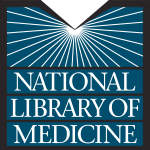- Industri: Library & information science
- Number of terms: 152252
- Number of blossaries: 0
- Company Profile:
The National Library of Medicine (NLM), on the campus of the National Institutes of Health in Bethesda, Maryland, is the world's largest medical library. The Library collects materials and provides information and research services in all areas of biomedicine and health care.
A membranous cellular tissue that covers a free surface or lines a tube or cavity of an animal body and serves especially to enclose and protect the other parts of the body, to produce secretions and excretions, and to function in assimilation.
Industry:Medical
An inflammatory condition of the skin characterized by redness, itching, and oozing vesicular lesions which become scaly, crusted, or hardened.
Industry:Medical
1) A specific region or amino acid sequence in a protein associated with a particular function or corresponding segment of DNA
2) A discrete portion of a protein with its own function. The combination of domains in a single protein determines its overall function.
Industry:Medical
An individual's objective and insightful awareness of the feelings and behavior of another person. It should be distinguished from sympathy, which is usually nonobjective and noncritical. It includes caring, which is the demonstration of an awareness of and a concern for the good of others.
Industry:Medical
1) Measurement and interpretation of the electrical manifestations of muscle activity.
2) Recording of the changes in electric potential of muscle by means of surface or needle electrodes.
Industry:Medical
1) A protein that speeds up chemical reactions in the body.
2) An enzyme is a biological catalyst and is almost always a protein. It speeds up the rate of a specific chemical reaction in the cell. The enzyme is not destroyed during the reaction and is used over and over. A cell contains thousands of different types of enzyme molecules, each specific to a particular chemical reaction.
Industry:Medical
1) The system of glands that release their secretions (hormones) directly into the circulatory system. In addition to the endocrine glands, included are the chromaffin system and the neurosecretory systems.
2) Collective designation for those tissues capable of secreting hormones.
Industry:Medical
Applied science or the biosocial movement which advocates the use of practices aimed at improving the genetic composition of a population. Usually refers to human populations.
Industry:Medical
Method of measuring the quantity of a variety of analytes, including DNA, RNA, and protein, by comparison with a known standard; can be used to determine the number of copies of a sequence of DNA (i.e., to test for duplication and deletion mutations) either by visual comparison of band intensity or numerical quantification by densitometry. If extra copies of a gene are present, intensity is greater than 100% on a gel or film; whereas, if one copy of the gene is missing, the intensity is approximately 50%.
Industry:Medical
